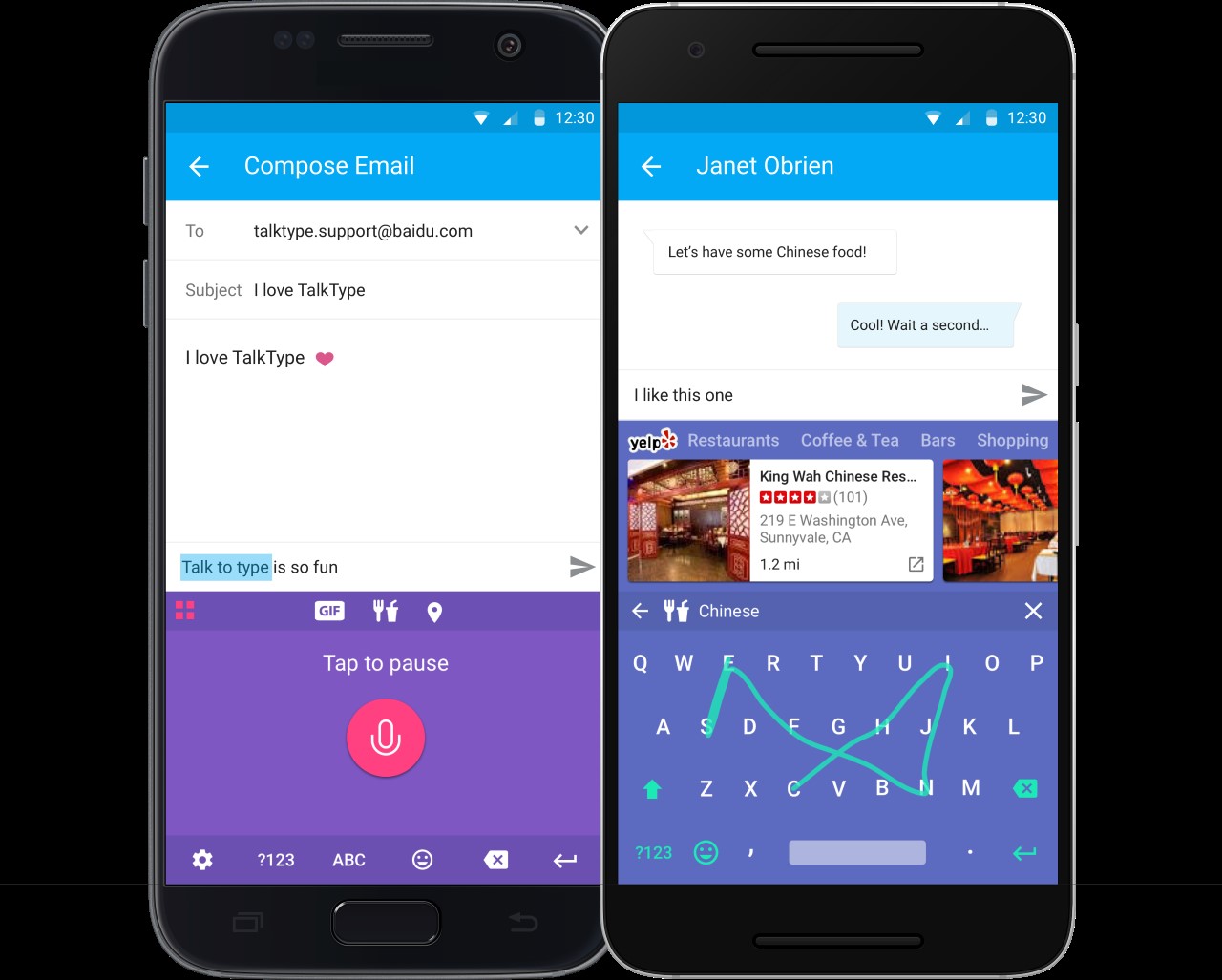
Five years of owning smartphones has conditioned my thumbs to navigate tiny virtual keyboards with speed and precision. I imagine many feel the same way, given smartphone owners worldwide are spending between 50 and 200 minutes every week using messaging apps.
Yet an increasing number of voice dictation apps are making it easier than ever to communicate not with our thumbs, but with our voices. In effect, they’re bringing phones full circle, returning voice to the forefront. The latest example of such an app is TalkType, an Android keyboard created by Baidu Research and launching Monday.
What separates TalkType from the myriad other smartphone keyboards out there is that its users aren’t greeted with a QWERTY typing pad, but rather a round microphone icon. Tapping this microphone triggers a “Speak now” prompt, indicating that the app is listening for input. As is the case with many other voice dictation capabilities, users will see the text field fill with words as they speak. (As a backup, Baidu’s app can also be used as a regular keyboard with the tap of a button, replete with animated GIFs, emoji, and the ability to search for restaurants built right in.)
Of course, many smartphones have long offered voice dictation on their default keyboards. But Baidu’s app puts the feature front and center, a striking change from most smartphone keyboards.
After briefly testing the app, I found TalkType to be more accurate than the iPhone’s default dictation in several situations, and just as accurate as Google’s default voice typing in most instances. Especially useful is that TalkType’s keyboard turns into a trackpad when editing text. Rather than trying to place the cursor in a precise spot in a line of text, users can swipe their fingers across the keyboard area to move between letters and words more easily. Apple users with an iPhone 6s or newer can perform a similar maneuver using 3D Touch on the iPhone’s built-in keyboard.
TalkType is not a full-on digital assistant like Apple’s Siri or Microsoft’s Cortana. But Baidu is hopeful it will help the firm flesh out its speech recognition and related technologies. “Automatic speech recognition has to be really good before your assistant becomes useful,” says Bijit Halder, a project leader in Baidu’s artificial intelligence lab. Baidu is among China’s top technology firms, specializing primarily in web search.
“Unless your [assistant] fundamentally understands what I’m saying, there is no way you can get a satisfactory user experience overall,” Halder adds.
More Must-Reads from TIME
- Why Trump’s Message Worked on Latino Men
- What Trump’s Win Could Mean for Housing
- The 100 Must-Read Books of 2024
- Sleep Doctors Share the 1 Tip That’s Changed Their Lives
- Column: Let’s Bring Back Romance
- What It’s Like to Have Long COVID As a Kid
- FX’s Say Nothing Is the Must-Watch Political Thriller of 2024
- Merle Bombardieri Is Helping People Make the Baby Decision
Contact us at letters@time.com